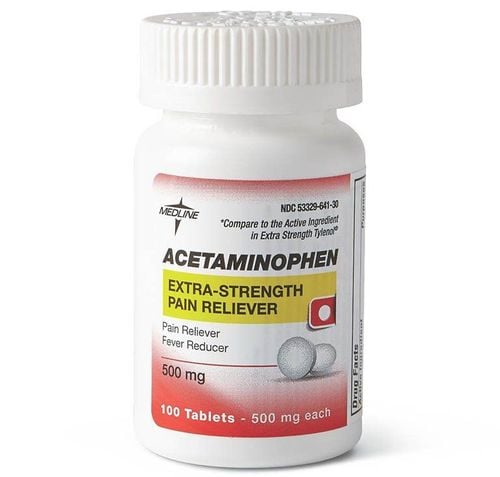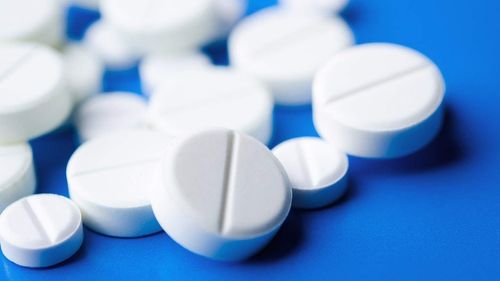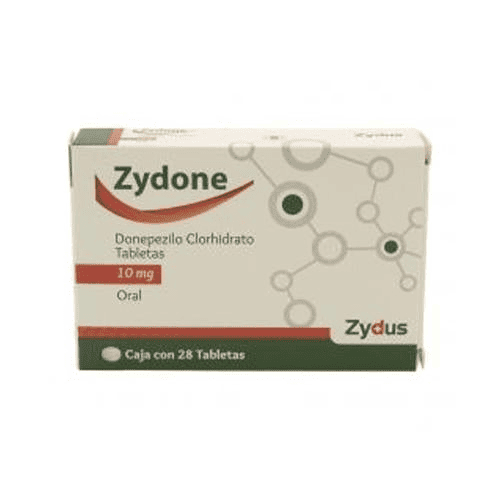This is an automatically translated article.
Hydrocodone and Acetaminophen are two active ingredients with analgesic effects, used to relieve pain in many different cases. So how is the combination pain reliever Hydrocodone and Acetaminophen used?
1. How does the combination pain reliever Acetaminophen and Hydrocodone work?
Acetaminophen and Hydrocodone is a combination medicine used to relieve moderate to severe pain. Hydrocodone is in a group of drugs known as narcotic analgesics. Acetaminophen is a less effective pain reliever, when used in combination it increases the effect of hydrocodone.
Hydrocodone and Acetaminophen combination pain relievers are contraindicated in the following cases:
People who are allergic to acetaminophen or hydrocodone. People with severe asthma or breathing problems. People who are suffering from a blockage in the stomach or intestines. To make sure Acetaminophen and Hydrocodone is safe for you, tell your doctor if you have ever had:
Shortness of breath, sleep apnea. Liver disease Addiction to drugs or alcohol. Kidney disease. Head injury or seizure. Urinating problems Thyroid, pancreas, or gallbladder problems. If you use the combination pain reliever Hydrocodone and Acetaminophen while you are pregnant, your baby may become dependent on the medicine. This condition can cause life-threatening withdrawal symptoms in a baby after birth. Babies born dependent on opioid painkillers may need medical treatment for several weeks.
Accordingly, mothers need to be careful not to breastfeed when using Acetaminophen and hydrocodone because they can pass into breast milk and cause drowsiness, difficulty breathing or death in breastfed babies.
2. How to use combination pain reliever Hydrocodone and Acetaminophen?
You need to take acetaminophen and hydrocodone exactly as prescribed by your doctor. Never use acetaminophen and hydrocodone in larger amounts or for longer than prescribed. An overdose of this combination pain reliever can damage your liver or cause death. Let your doctor know if you feel like you need more and more of your Hydrocodone and Acetaminophen combination pain reliever. If you are in need of surgery or medical tests, tell your doctor ahead of time that you are using the combination pain reliever hydrocodone and acetaminophen. You should not stop using this combination pain reliever suddenly. Follow your doctor's instructions about reducing the dose of your medication. The first signs of acetaminophen and hydrocodone overdose include loss of appetite, nausea, vomiting, stomach pain, sweating, and confusion or weakness. Later symptoms may include upper abdominal pain, dark urine, and yellowing of the skin or eyes. Overdose of hydrocodone and Acetaminophen combination pain relievers can also cause severe muscle weakness, floppy pupils, very slow breathing, extreme drowsiness, or coma. You should not drive or operate machinery until you know how acetaminophen and hydrocodone will affect you. Dizziness or drowsiness can cause a fall, accident, or serious injury. Do not drink alcohol while using this combination pain reliever. Dangerous side effects or death can occur if you drink alcohol while using this combination pain reliever.
3. Side effects of acetaminophen and hydrocodone combination pain relievers
If you have signs of an allergic reaction to acetaminophen or hydrocodone, get medical help right away: Hives, trouble breathing, swelling of your face, lips, tongue, or throat.
Opioid pain relievers can slow or stop you breathing and can lead to death. If your loved one is taking medication and has symptoms of slow, intermittent breathing, blue lips, or if you have trouble waking up, you need to seek emergency medical help.
In rare cases, acetaminophen can cause a serious and fatal skin reaction. This can happen even if you have taken acetaminophen in the past and have not had a reaction. Stop taking Hydrocodone and Acetaminophen combination pain relievers and call your doctor at once if you have skin redness or a widespread rash that causes blistering and peeling of the skin.
Call your doctor right away if you experience the following side effects after using Hydrocodone and Acetaminophen combination pain relievers:
Loud breathing, sighing, shallow breathing, sleep apnea. Feeling like you might pass out. Liver problems with symptoms such as nausea, upper abdominal pain, fatigue, loss of appetite, dark urine, clay-colored stools, yellowing of the skin or eyes. Symptoms of low cortisol such as nausea, vomiting, loss of appetite, dizziness, fatigue or worsening weakness; High serotonin levels in the body with symptoms such as agitation, hallucinations, fever, sweating, shivering, tachycardia, loss of coordination, muscle stiffness, convulsions, nausea, vomiting, and diarrhea run. Severe breathing problems with the combination pain reliever Hydrocodone and Acetaminophen may be more likely to occur in older adults and in people who are debilitated, people with wasting syndrome, or people with a chronic breathing disorder. count.
Long-term use of opioid pain relievers can affect fertility in men or women. It is not known whether the effects of opioid drugs on fertility are permanent.
Common side effects of acetaminophen or hydrocodone include:
Dizziness Drowsiness Feeling tired. Nausea, Vomiting Stomach pain Constipation Headache
4. Interactions of Hydrocodone and Acetaminophen combination pain relievers with other drugs
Hydrocodone and Acetaminophen combination pain relievers can interact with many other drugs and cause dangerous side effects or death. Make sure your doctor knows if you also use the following:
Cold or allergy medicine, bronchodilator/COPD asthma medicine or diuretics. Motion sickness medicine, medicine for irritable bowel syndrome or overactive bladder. Other opioid medications include prescription opioid pain relievers or cough suppressants. Sedatives such as diazepam, alprazolam, lorazepam, Xanax, Klonopin, Versed, and others. Medicines that make you sleepy or slow your breathing, such as sleeping pills, muscle relaxers, drugs for mood disorders or mental illness. Medicines that affect serotonin levels in the body such as a stimulant or medicine for depression, Parkinson's disease, migraines. Hydrocodone and Acetaminophen are two pain relievers that are used to relieve pain in many cases. To ensure the effectiveness of treatment and avoid side effects, users need to strictly follow the instructions of the doctor.
Follow Vinmec International General Hospital website to get more health, nutrition and beauty information to protect the health of yourself and your loved ones in your family.
Please dial HOTLINE for more information or register for an appointment HERE. Download MyVinmec app to make appointments faster and to manage your bookings easily.
Reference source: drugs.com













